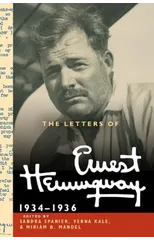The Torrents of Spring, is a captivating story by Ernest Hemingway that serves as both a tribute and a critique of the literary world of his time. Set against the backdrop of post-World War I America, the story follows the journey of two main characters, the disillusioned writer, and the spirited young woman, as they navigate the complexities of love, ambition, and the search for authenticity in a rapidly changing society. Hemingway's signature sparse prose and keen observations shine throughout the narrative, capturing the essence of human emotions and the struggles of artistic integrity. The story is infused with a sense of irony and humor, as it explores themes of existentialism and the absurdity of life, all while maintaining a light-hearted tone. As the characters grapple with their aspirations and the societal expectations placed upon them, readers are drawn into a world that reflects both the beauty and the turmoil of the human experience. The Torrents of Spring is not only a reflection of Hemingway's early style but also a poignant commentary on the nature of creativity and the challenges faced by those who dare to pursue their passions. This work is a must-read for anyone interested in understanding the complexities of the human spirit through the lens of one of literature's most iconic figures.
Ernest Hemingway
Ernest Hemingway (1899-1961) was an American novelist, short story writer, and journalist known for his distinctive writing style and portrayal of masculinity. His most notable works include "The Old Man and the Sea," "A Farewell to Arms," and "The Sun Also Rises." Hemingway's writing is characterized by its spare prose, realistic dialogue, and emphasis on themes of war, love, and loss. He is credited with revolutionizing the modern American novel and influencing generations of writers with his minimalist approach to storytelling. "The Old Man and the Sea," a novella about an aging fisherman's struggle with a marlin, remains one of Hemingway's most famous and enduring works, winning him the Pulitzer Prize for Fiction in 1953 and solidifying his reputation as a literary giant.












